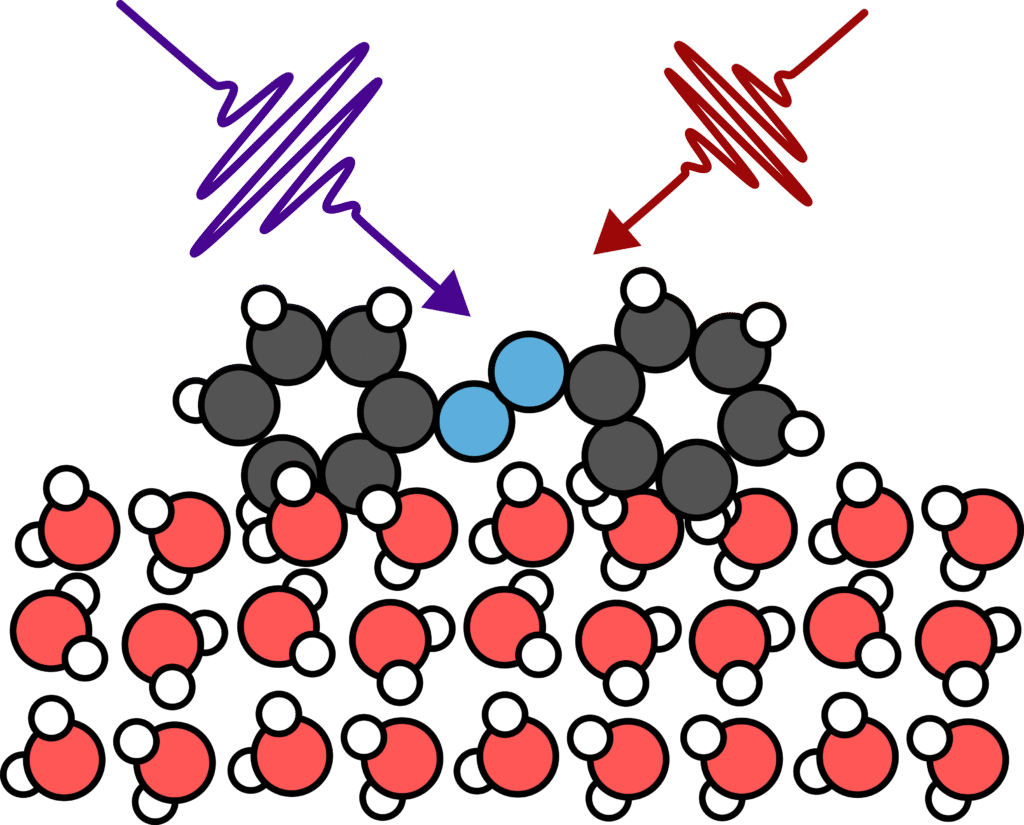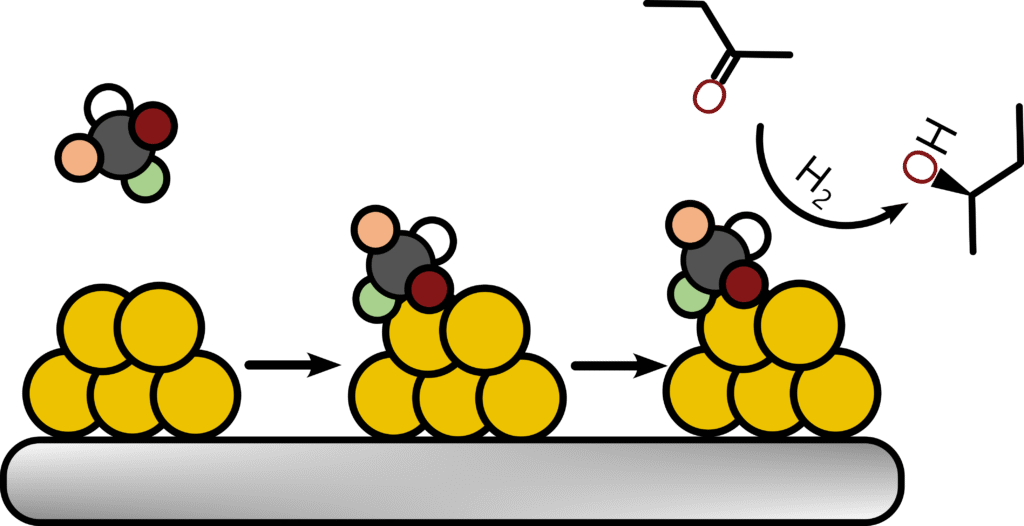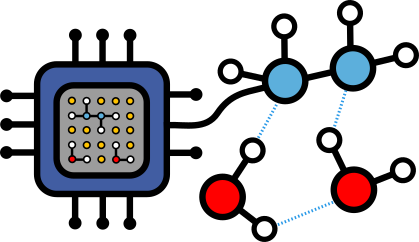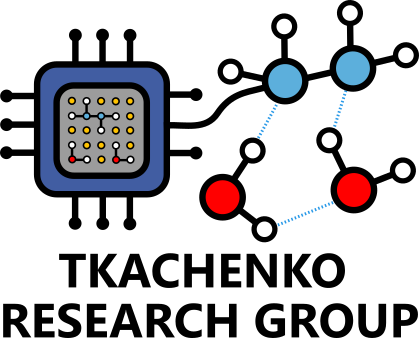Research Areas
The Tkachenko Research Group is a team of electronic structure theorists and computational chemists who develop new methods and reveal chemistry and physics behind complex processes through advanced simulations. Below is a list of research topics actively pursued by the group.
Efficient Molecular Simulations on Quantum Computers and Quantum Computation with Chemistry
This research program aims to bridge the gap between current quantum hardware capabilities and the demands of practical quantum chemical applications. Our focus is on developing compact, chemically inspired quantum algorithms suitable for near-term quantum devices, with an emphasis on modeling strongly correlated systems, excited states, and coupled electron-nuclear dynamics. We also explore intelligent quantum subspace methods for excited-state calculations, global minimum structure search using quantum algorithms, and the potential of using molecular systems themselves as platforms for quantum computation.

Computational Modeling of Photochemical Processes on Interfaces
This research program addresses key challenges in simulating interfacial photochemistry by developing efficient methods that capture environmental effects without the high cost of fully explicit simulations. It focuses on three directions: (1) improving implicit models to accurately represent interface-specific molecular distributions and dynamics; (2) advancing hybrid quantum mechanics/machine learning (QM/ML) approaches to combine electronic structure accuracy with computational efficiency for explicit interface modeling; and (3) creating cost-effective methods to simulate excited-state dynamics modified linear-response and coupled-cluster techniques.

Rational Design of Hybrid Catalysts for Enantioselective Reactions
This research program aims to advance the rational design of enantioselective catalysts by bridging homogeneous and heterogeneous approaches through atomically defined systems. The project targets two central challenges: integrating the precision of homogeneous catalysis with the robustness of heterogeneous systems, and elucidating the mechanisms underlying enantioselectivity in nanostructured catalysts. This effort will guide the development of sustainable, tunable catalysts with improved activity and selectivity for a range of asymmetric reactions.



